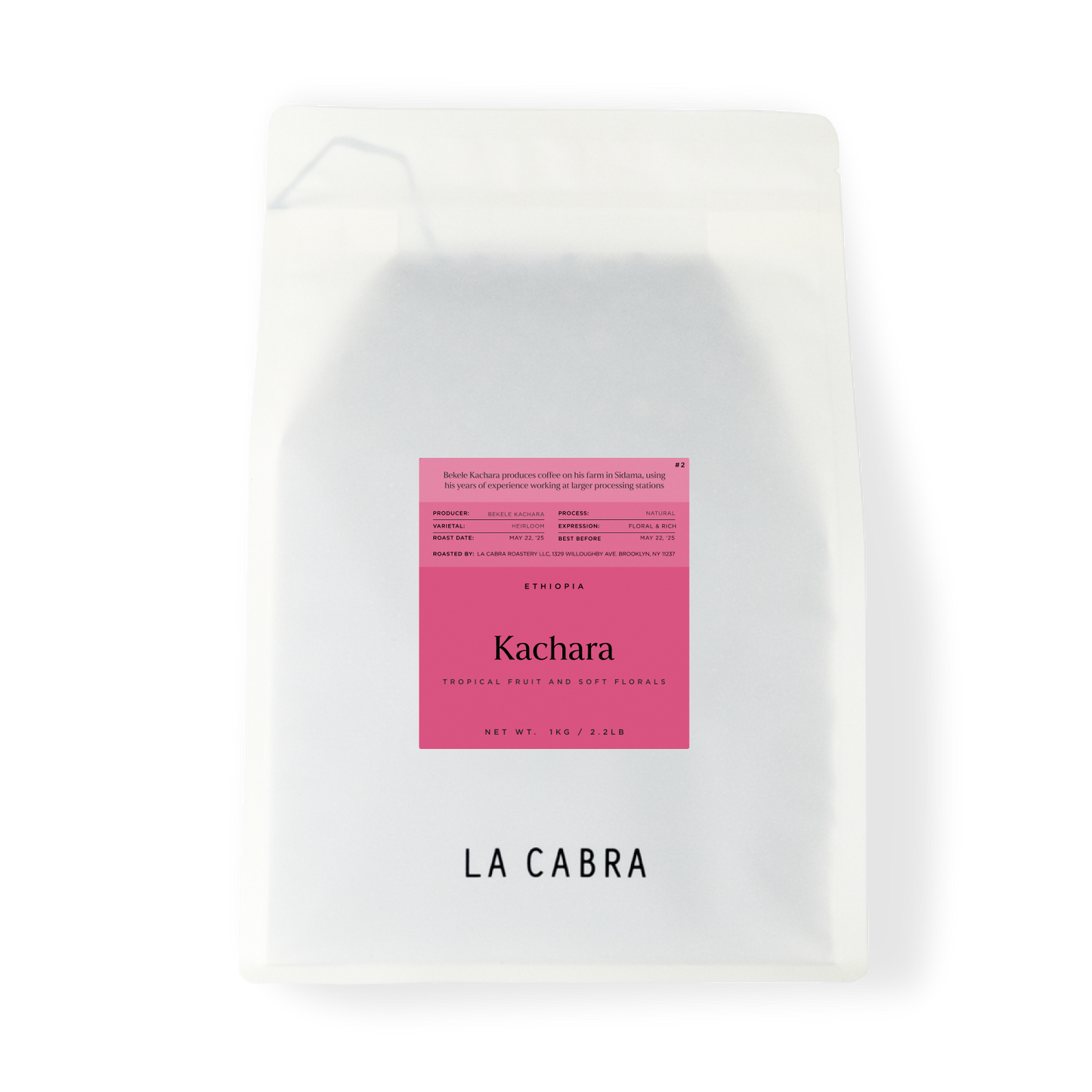

Kachara
Bekele Kachara has been dedicated to coffee cultivation for over two decades, managing several farms in the Bensa area of the Sidamo region. His dedication to quality is evident in the quality of the coffee he grows on his small plot near the village of Murago. Together with his wife, Abinet, Bekele raises thirteen children, with four of them already involved in the family’s coffee production.
Bekele has a meticulous approach to coffee farming, cultivating several native varietals of coffee in harmony with the forest cover. He uses shaded drying beds he has built on the farm, allowing him to process his own coffee, although so far only naturals.
-1-v1740149954455.webp?5152x6436)
Although Bekele’s coffee isn’t certified organic due to the high costs of certification for small-scale growers, he uses organic methods, fertilising his farm with compost or agricultural residues. His level of expertise, especially in processing, comes from years of experience, including work at independent businesses and cooperative-owned washing stations in the nearby Bensa and Bona districts. He continuously seeks to improve, aiming to produce high-quality coffee through innovation and improvement. This led to his partnership with ZEM coffee, an exporter that specialises in maintaining traceability of small single farmer lots, transferring as much value as possible back to these individuals.
-1-v1740149956194.webp?8192x6554)
This lot has a deep and complex fruit character, reminiscent of aromatic tropical fruit, elements of stone fruit and subtle red berries. All of this underpins the typically Ethiopian floral notes, here softened into magnolia.
In Ethiopia, coffee still grows semi-wild, and in some cases completely wild. Apart from some regions of neighbouring South Sudan, Ethiopia is the only country in which coffee is found growing in this way, due to its status as the genetic birthplace of arabica coffee. This means in many regions, small producers still harvest cherries from wild coffee trees growing in high altitude humid forests, especially around Ethiopia’s famous Great Rift Valley.
Forest coffee makes up a great deal of Ethiopia’s yearly output, so this is a hugely important method of production, and part of what makes Ethiopian coffee so unique. Deforestation is threatening many of coffee’s iconic homes in Ethiopia, leading to dwindling yields and loss of biodiversity; significant price fluctuations over the past decade have led many farmers to replace coffee with fast growing eucalyptus, an incredibly demanding crop in terms of both water and nutrient usage.
-1-v1740149957846.webp?5460x8192)
Throughout these endemic systems, a much higher level of biodiversity is maintained than in modern coffee production in much of the rest of the world. This is partly due to the forest system, and partly down to the genetic diversity of the coffee plants themselves. There are thousands of ‘heirloom’ varieties growing in Ethiopia; all descended from wild cross pollination between species derived from the original Arabica trees. This biodiversity leads to hardier coffee plants, which don’t need to be artificially fertilised. This means that 95% of coffee production in Ethiopia is organic, although most small farmers and mills can’t afford to pay for certification, so can’t label their coffee as such.
The absence of monoculture in the Ethiopian coffee lands also means plants are much less susceptible to the decimating effects of diseases such as leaf rust that have ripped through other producing countries. Maintaining these systems is important, both within the context of the coffee industry, and for wider biodiversity and sustainability. Our primary partners in Ethiopia, Moplaco, have made it their mission to inform of this destruction, and to continue supporting the communities they work with in order to make coffee a profitable and attractive business for smallholder farmers.
-1-v1740149959487.webp?5464x8192)

-v1740149961330.jpg?2417x1200)

























